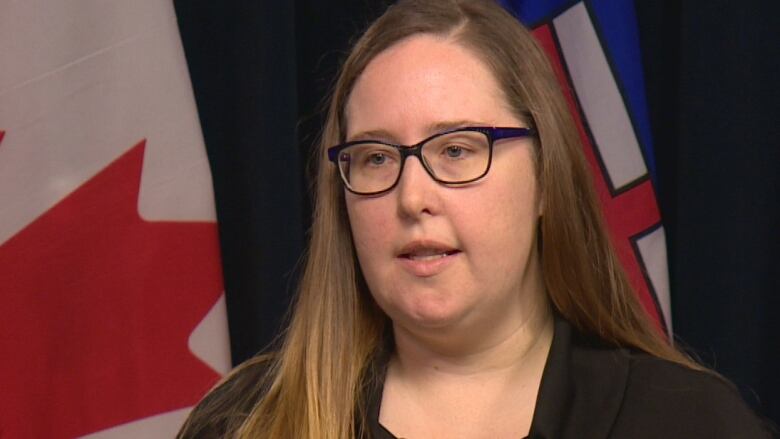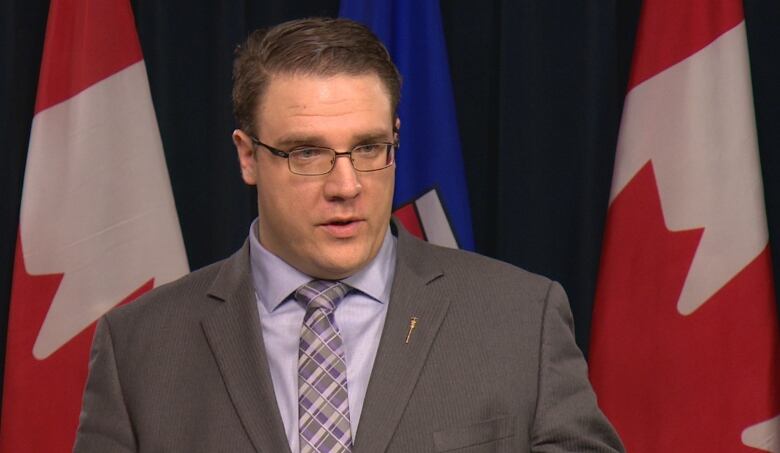Bill aims to get 'big money' out of Alberta politics
Bill caps spending by political parties during elections to $2 million

A new bill aims to limit what parties can spend on election campaigns in Alberta, and how much individuals can spend on political donations in a single year.
If passed, the Fair Elections Financing Act will limit the aggregate amount an individual can donate in year to candidates, parties, leadership contenders, constituency associations and candidates standing for nominations to $4,000.
The current limits are $15,000 a year, and $30,000 in an election year.
"This limit is reasonable and ensures that no single individual has significant influence over a political party, candidate or contestant," said Christina Gray, the minister responsible for democratic renewal.
The bill builds on work the government started last year by banning corporate and union donations to political parties.
The bill also proposes to limit the amount a party can spend on an election campaign to $2 million. Individual candidates will only be able to spend $50,000, though there are exemptions for the costs of travel and child care, in addition to small expenses incurred by volunteers.
Political parties and candidates did not face limits before. In the 2015 election, the Progressive Conservative party spent $4.3million but lost to the NDP.

The bill proposes to control third-party advertising. During the writ period, advertisers could spend no more than $150,000 and contributors would have to be disclosed to Elections Alberta.
No more than $3,000 could be spent on opposing an individual candidate.
Donations during the election would be disclosed on a weekly basis.
Donations that exceed the legislated amounts would have to be returned to contributors or stay with the party.
Increased workload
There are no limits on third-party advertising outside the election period, a move the government is taking to avoid a constitutional challenge on free speech.
Donors who liveoutside Alberta can donate any amount. However, their identities still must be disclosed to Elections Alberta if they donate or spend more than $1,000. That information would be released to the public every quarter.
The bill also proposes to make leadership candidates register with Elections Alberta and start disclosing their donors as soon as they announce their candidacy.
PC leadership candidate Jason Kenney was able to fundraise all summer beforethe official start of the race on Oct. 1. Under current rules, Kenney isn't required to reveal his donors, though he said he will do so after the campaign is over.
The current PC leadership race will be exempt from the new rules, asit was already underway when the bill was introduced. Excess donations are not allowed to go to the party, so candidates will have to return themto contributors.
The chief electoral officer will police the changes. Gray acknowledges the moves will increase the office's workload, so her ministry will discuss a budget increase for the next fiscal year.
The act does not put a limit on government advertising during an election campaign. The change was proposed in a private member's bill from Wildrose MLA Rick Strankman, which was referred to the special committee on ethics and accountability.
The committee ended its work in September without addressing that issue. Wildrose ethics and accountability critic Jason Nixon said that problem is still outstanding.
"We are disappointed that the government has not recognized that the public purse is big money in the political process," he said.
Nixon said donations to individual candidates used to be limited to $1,000 each. The changes allow a person to use their entire $4,000 limit on one candidate, meaning a handful of people could donate to a candidate's campaign, potentially giving them more influence.












_(720p).jpg)


 OFFICIAL HD MUSIC VIDEO.jpg)
.jpg)



























































































